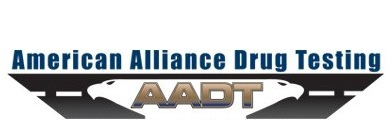Effective June 5, 2020, and ends September 30, 2020
On June 5, FMCSA released a “Grant of Waiver”, saying, “As employers begin to recall drivers who were furloughed, laid off, or otherwise not working for the company for more than 30 days, the cost and logistical barriers of testing a large influx of drivers in a short timeframe are significant, at a time when the commercial trucking and motorcoach industry is facing unprecedented economic challenges. This problem is further compounded by the reduced availability of controlled substances testing resources due to continued facility closures or other testing impediments caused by the COVID-19 public health emergency.”
FMCSA also noted that, “This waiver would extend, from 30 days to 90 days, the period under which drivers would qualify for the pre-employment testing exception under 49 CFR 382.301(b). This relief would allow employers to forego pre-employment testing for drivers who have participated in a controlled substances testing program that meets the requirements of 49 CFR part 382 within the previous 90 days of hire or rehire. Allowing employers to forego pre-employment testing for drivers who were in a testing program within the previous 90 days will provide relief from the administrative burdens and costs associated with administering tests and allow them to return drivers to the workforce in a more efficient manner, thus promoting job creation and economic growth.”
The FMCSA’s waiver also clarified that, “It is important to note that this waiver does not alter any of the remaining controlled substances and alcohol use and testing requirements for a driver performing safety-sensitive functions, and that motor carrier employers subject to the waiver have access, in real time, to driver-specific drug and alcohol violation information through the Drug and Alcohol Clearinghouse (Clearinghouse).”
According to WSTA legal counsel, “The waiver appears to apply to both re-hires and new hires, provided they were in a program within the past 90 days.” Also, “The waiver clarifies that it “would extend, from 30 days to 90 days, the period under which drivers would qualify for the pre-employment testing exception under 49 CFR 382.301(b). This relief would allow employers to forego pre-employment testing for drivers who have participated in a controlled substances testing program that meets the requirements of 49 CFR part 382 within the previous 90 days of hire or rehire.” See 49 CFR 382.301(b) and (c).
This is a reasonable regulatory response to the pandemic and the subsequent return to work process the nation and its transportation companies and their employee drivers are presently experiencing. We suggest that for all employee drivers subject to the waiver, that the company add this document with the rehire dates on or after June 5, and insert it into the employee files noting that the preemployment drug test was waived.
For more details, visit the FMCSA web page https://www.fmcsa.dot.gov/emergency/three-month-waiver-response-economic-consequences-covid-19-public-health-emergency
To review the entire waiver click here:
https://www.fmcsa.dot.gov/sites/fmcsa.dot.gov/files/2020-06/Waiver%20-%20Preemployment%20testing%20-%20FINAL%20-%20June%205.pdf



